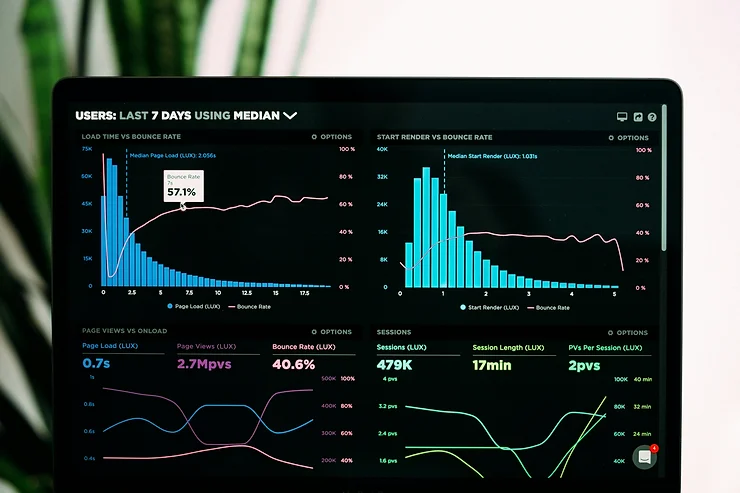Introduction
Artificial Intelligence (AI) is revolutionizing the way businesses operate, offering unprecedented opportunities to enhance efficiency, decision-making, and customer experience. By leveraging AI, organizations can automate processes, analyze data at scale, and innovate faster than ever before. This blog explores the top five business benefits of AI, showcasing how it can transform various aspects of an organization.
Enhanced Automation and Efficiency
Artificial Intelligence (AI) excels at automating repetitive tasks, freeing up human resources for more strategic work. Enhanced automation and efficiency are among the most significant benefits AI brings to businesses. By delegating mundane and time-consuming tasks to AI systems, employees can focus on higher-value activities that require creativity and critical thinking.
For example, in Human Resources (HR), AI can streamline the recruitment process by screening resumes and identifying top candidates based on predefined criteria. In marketing, AI can automate campaign management, optimizing ad placements and targeting for better results. In finance, AI-powered algorithms can handle transactions, detect fraud, and generate financial reports with minimal human intervention.
Overall, AI-driven automation leads to increased productivity and operational efficiency across departments, enabling businesses to achieve more with fewer resources.
Data-Driven Decisions and Improved Insights
AI’s ability to analyze vast amounts of data is a game-changer for businesses seeking data-driven decisions and improved insights. Traditional data analysis methods can be time-consuming and prone to human error. In contrast, AI can quickly process and interpret large datasets, identifying patterns and trends that might go unnoticed by human analysts.
With AI, businesses can gain valuable insights into customer behavior, market trends, and operational performance. These insights empower decision-makers to make informed choices that drive growth and profitability. For instance, AI can predict customer preferences, allowing companies to tailor their products and services to meet specific needs. In operations, AI can optimize supply chain management by forecasting demand and identifying potential bottlenecks.
By leveraging AI for data analysis, organizations can stay ahead of the competition and make strategic decisions that lead to better outcomes.
Personalized Customer Experiences
Personalized customer experiences are crucial for building loyalty and satisfaction. AI plays a pivotal role in delivering these experiences by analyzing customer data and tailoring interactions to individual preferences. This personalization can take many forms, from product recommendations to targeted marketing campaigns.
AI-powered chatbots are a prime example of how businesses can enhance customer interactions. These chatbots can provide instant support, answer queries, and guide customers through the purchasing process, all while learning from each interaction to improve future responses. Additionally, AI-driven recommendation engines can suggest products or services based on a customer’s browsing history and previous purchases, increasing the likelihood of conversion.
By leveraging AI to personalize customer experiences, businesses can foster stronger relationships, increase customer retention, and ultimately drive sales.
Innovation and Competitive Advantage
AI fosters innovation and provides a competitive advantage by automating tasks and freeing up resources for research and development. When routine tasks are handled by AI, employees have more time and energy to focus on creative and strategic initiatives.
For example, AI can assist in product development by analyzing market trends and customer feedback to identify opportunities for innovation. In manufacturing, AI-powered robots can perform complex tasks with precision, enabling the production of high-quality goods at scale. Furthermore, AI can enhance business strategies by providing insights into competitor activities and market dynamics.
By embracing AI, businesses can stay ahead of the competition, offering unique products and services that set them apart in the market.
Risk Management and Cost Reduction
AI’s ability to identify potential risks and predict future outcomes is invaluable for risk management and cost reduction. By analyzing historical data and monitoring real-time information, AI can detect anomalies and alert businesses to potential threats before they escalate.
For instance, in financial services, AI can identify fraudulent transactions and prevent financial losses. In supply chain management, AI can predict disruptions and recommend contingency plans to ensure smooth operations. Additionally, AI can optimize processes and identify cost-saving opportunities, such as reducing energy consumption or minimizing waste in manufacturing.
By leveraging AI for risk management and cost reduction, businesses can operate more efficiently, mitigate risks, and improve their bottom line.
Getting Started with AI
Implementing AI solutions may seem daunting, but businesses can start by assessing their specific needs, budget, and resources. Begin by identifying areas where AI can have the most significant impact, such as automating repetitive tasks or enhancing data analysis capabilities.
Consider partnering with AI solution providers or consulting firms to develop and implement tailored AI strategies. Case studies and success stories can provide valuable insights into how other businesses have successfully integrated AI into their operations.
As AI continues to evolve, staying informed about the latest developments and trends is crucial. Continuous learning and adaptation will ensure that businesses maximize the benefits of AI and remain competitive in the ever-changing market landscape.
Conclusion
Ready to transform your business with AI? Contact us today for a consultation and learn how our AI solutions can help you achieve your business goals. Embrace the future of business with AI and unlock new opportunities for growth and success.




